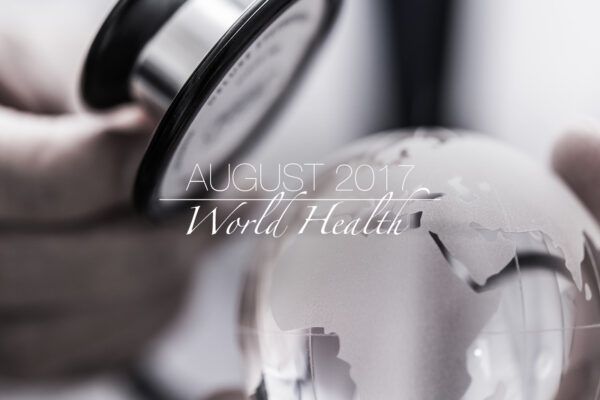I saw an ad for a TV show about modern plagues and new infections threatening life on the planet. What are these plagues, and could these be the last plagues mentioned in the Bible?
We don’t know what you saw, but there are indeed infectious-disease threats that are worth knowing about, whether or not they are related to the plagues of Revelation 16. The biblical last-day plagues occur just before the millennium and include natural disasters and pestilence (see Rev. 16:10-21). Current global health problems include mental and emotional illnesses, chronic degenerative diseases (noncommunicable diseases, or NCDs), inadequate nutrition, and substance abuse. These increase our susceptibility to new, emerging infectious diseases and old, established ones.
Almost all the emerging viral diseases originate in animals, which serve as their reservoirs and incubators. Mutations allow these germs to develop the ability to pass from animals to humans, then from humans to humans. In 2007 the World Health Organization (WHO) warned of an acceleration in emergence rates of infectious diseases. The appearance of new infectious diseases per decade has more than tripled over the past 50 years, and outbreaks per year have more than doubled during the same period.
At the same time, multiple drug-resistant organisms have become more common because of antibiotic misuse. Since the 1970s more than 40 infectious diseases—such as Ebola, swine flu, Lyme disease, avian flu, SARS, chikungunya, MERS, and Zika—have been discovered. Globally we are more vulnerable to the worldwide spread of a deadly infectious disease than a century ago, when the pandemic flu killed an estimated 50 to 100 million people. Because travel is so accessible over vast distances, and more people live in densely populated urban centers, the potential for rapid spread of contagious diseases is very high. Ever-closer contact between humans and animals and even bioterrorism increase this risk.
Mutated microbes may go unrecognized by our weakened immune defenses. So, should the bird flu, H7N9, which, in China, has recently been found to jump or spill over from poultry to humans, mutates more, it may become the next pandemic. WHO and the U.S. Centers for Disease Control and Prevention have placed this high on the watch list, since potential transformation to a more contagious form from human to human could happen at any time. Once this occurs, spread will be difficult to contain. Presently we have no means of preventing the transformation of the virus, no vaccine against it, and no tested global system in place to mount an adequate rapid response. While spillovers occur from time to time, the rapid environmental change brought about by our reckless abuse of the environment has accelerated the risk of spread.
Our understanding of and ability to detect potential harmful mutations in viruses is better than ever. Real-time detection and tracking are helpful, but our current weakened state leaves us with little immune protection against new viral strains. Even though the flu usually isn’t deadly for otherwise healthy people, most of the deaths in the 2009 swine flu epidemic were in low-risk age groups that were presumed to be healthy.
Maintaining a balanced, godly lifestyle helps optimize our immune defenses. Avoiding risky exposures is a natural safeguard. There are clear benefits to following an animal-free, or plant-based, diet; getting adequate exercise and rest; and maintaining wholesome relationships.
The question may not be “Could these be the last plagues?” but rather, “Am I prepared spiritually, mentally, and physically to face the oncoming apocalyptic onslaught?” Plus: “Am I doing all I can to help others be prepared as well?” n
Peter N. Landless, a board-certified nuclear cardiologist, is director of Adventist Health Ministries at the General Conference.
Zeno L. Charles-Marcel, a board-certified internist, is an associate director of Adventist Health Ministries at the General Conference.


